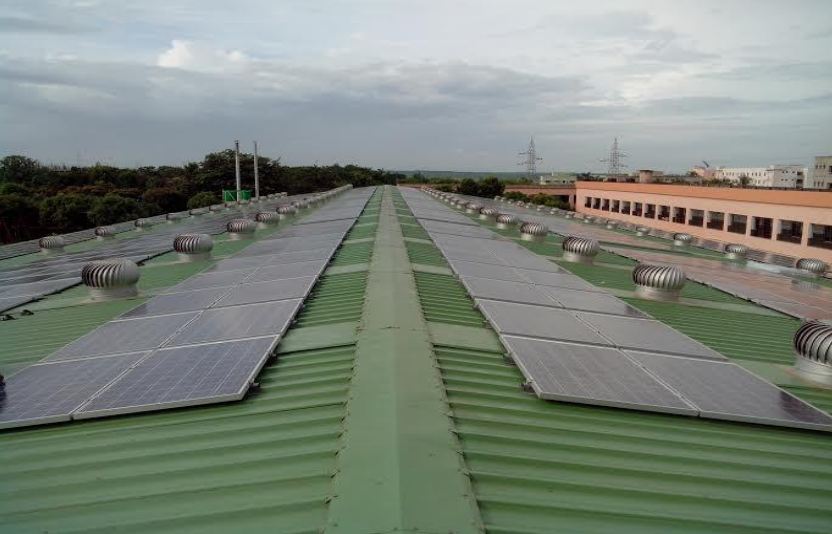The first project, inaugurated by VP Singh Badnore, Punjab Governor and Administrator of Chandigarh, is a 2 MW system installed at Water Works Station, Chandigarh. Local installer Hero Solar Energy Pvt Ltd built the installation for Chandigarh Renewal Energy and Science & Technology Promotion Society (CREST), according to local portal 5 Dariya News. The renewable energy ministry of Chandigarh has set an ambitious solar target of 50 MW by 2022. So far, however, only 13.5 MW solar power capacity was connected to the local grid.
Meanwhile, two more rooftop projects were announced by educational institutions in India. The solar consultancy company KOR Energy (India) Pvt Ltd has commissioned a 100 kW grid-tied solar rooftop system on Delhi Public School, Varanasi. Commenting on this, Sushil Sarawgi, Director, KOR Energy India Pvt Ltd, said to pv magazine: “It will be the first case of Net Metered Grid Connected Rooftop Solar System in Varanasi.” Sarawagi also said that the company will build three more installations totaling 233 kW September. “We have also bagged an order of 1.2 MW Rooftop from a large Corporate in Uttar Pradesh,” Sarawagi added.
Another installation was built in the capital, New Delhi, where one of India’s biggest universities, Jawaharlal Nehru University (JNU) started energy production from a 100 kW of rooftop system. Two separate 50 kW units were installed on an administration building and the School of Social Sciences-III by the company PEC Ltd. The system is expected to produce 120,000 – 150,000 kWh per year.
Popular content
For these projects, the Ministry of New and Renewable Energy (MNRE) has provided a 30% rebate to cover the costs for buying and installing the systems. Thus, the institutions with the government support, may come closer to India’s unrealistic target of 40 GW solar roof-top capacity by 2022.
The Standing Committee of Energy, MNRE, addressed the issue in the Indian Parliament on 31 July 2017, stating “The Committee feels that the rooftop solar target of 40 GW by 2022 is unrealistic and it is highly unlikely that this target will be achieved.” The Committee, therefore, recommends that the target of 40 GW through rooftop solar projects should be reconsidered”, the report said.
This content is protected by copyright and may not be reused. If you want to cooperate with us and would like to reuse some of our content, please contact: editors@pv-magazine.com.


By submitting this form you agree to pv magazine using your data for the purposes of publishing your comment.
Your personal data will only be disclosed or otherwise transmitted to third parties for the purposes of spam filtering or if this is necessary for technical maintenance of the website. Any other transfer to third parties will not take place unless this is justified on the basis of applicable data protection regulations or if pv magazine is legally obliged to do so.
You may revoke this consent at any time with effect for the future, in which case your personal data will be deleted immediately. Otherwise, your data will be deleted if pv magazine has processed your request or the purpose of data storage is fulfilled.
Further information on data privacy can be found in our Data Protection Policy.